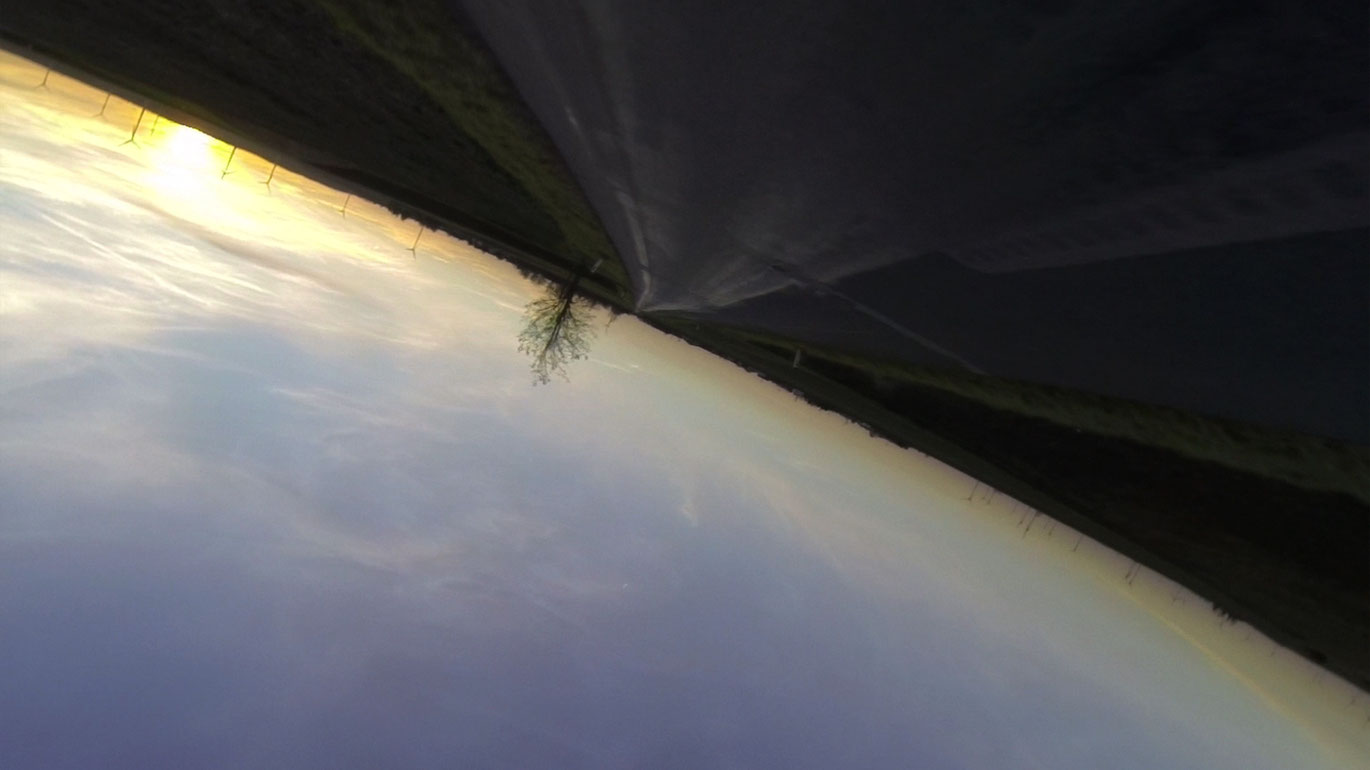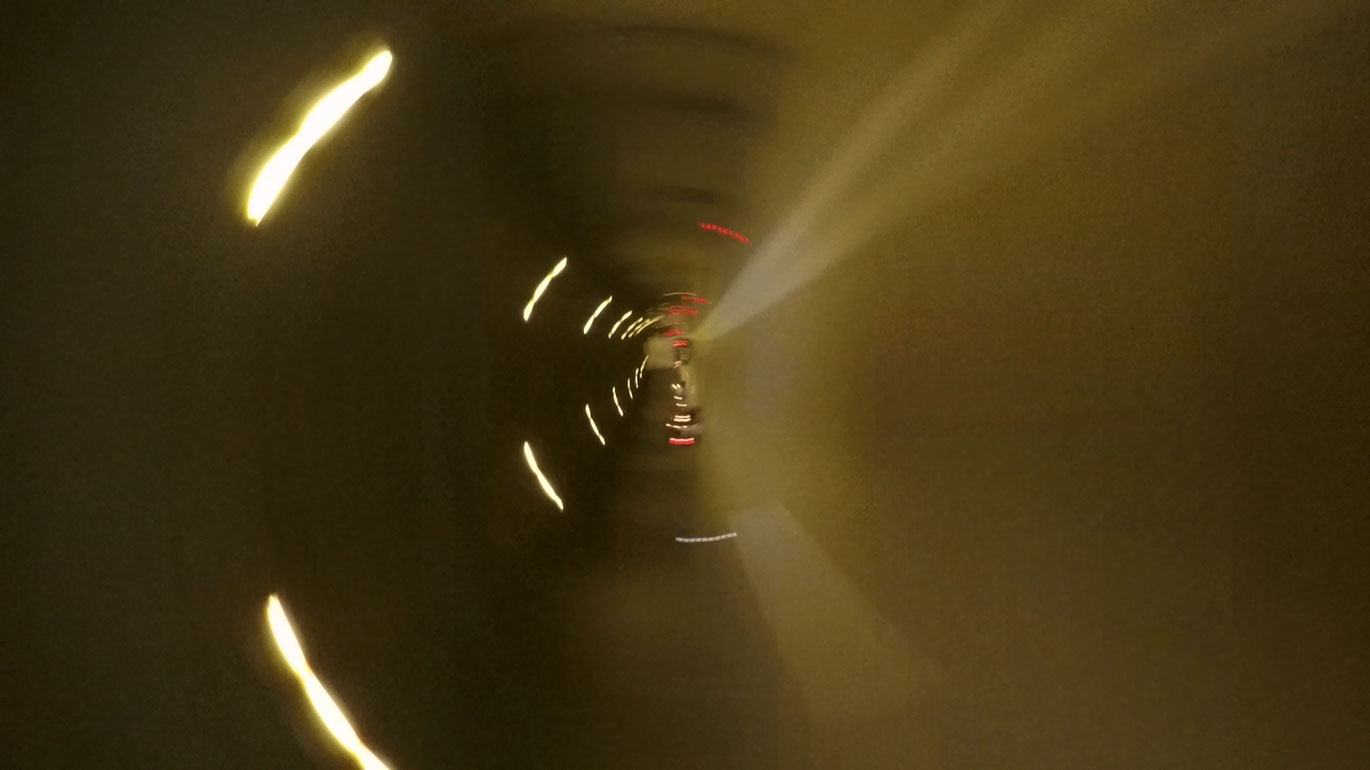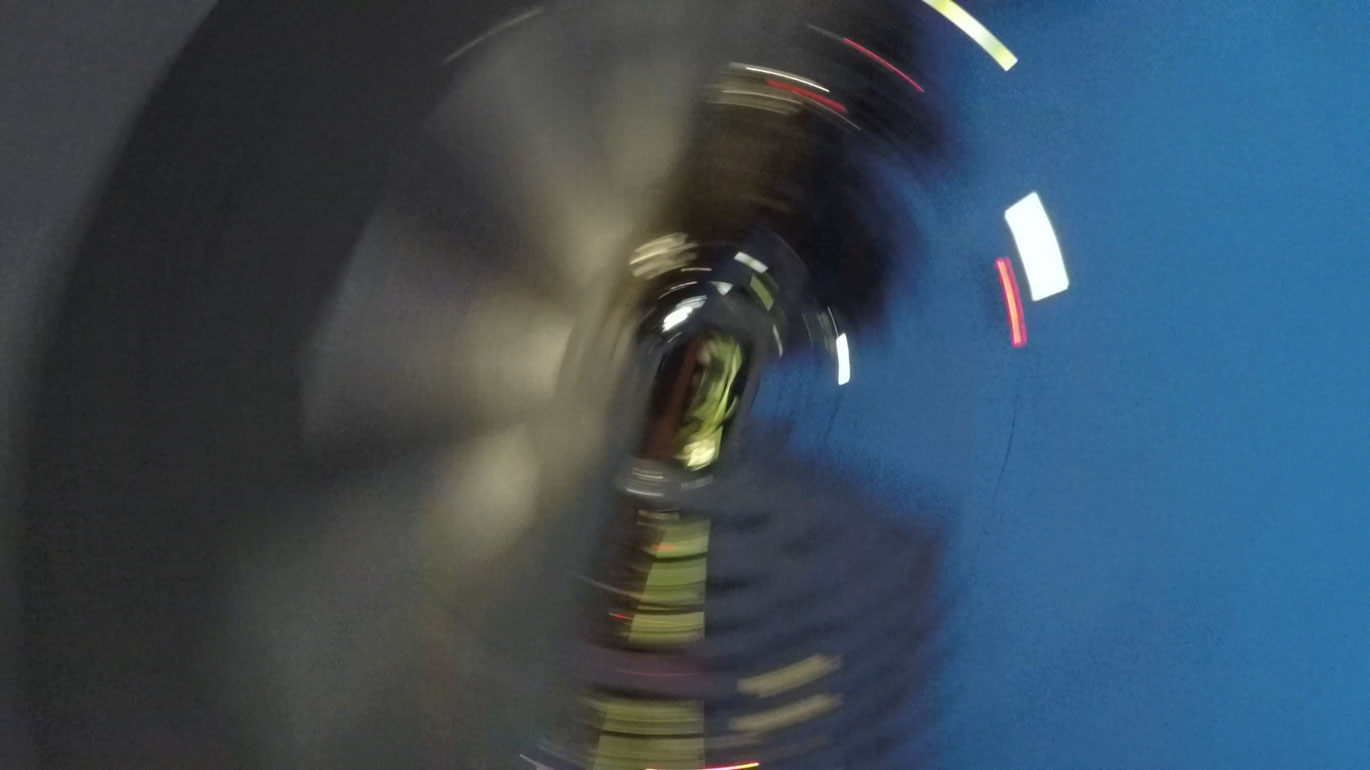Hypnodrome
A drive down a lonely country road at dusk: initially the perspective of the film remains coupled with that of the car. But barely after we have calibrated our gaze and adjusted to the motion, the horizontal axis of the image slowly starts rotating. Its increasing velocity soon evokes the analogy of a propeller; the contrast of darkness and light gains speed till the eye can´t keep up with the image. A landscape of buildings and a few flowers flies by, telescoping into an abstract mandala.
Richard Wilhelmer´s Hypnodrom is thoroughly tailored to this sensuously exhilarating effect, produced by a camera with a rotating mechanism specially customized for this purpose (Benjamin Maus/Martin Putz). The street scene only serves as the matrix of the spectacle, transforming a drive through the countryside and fluorescent-lit city into a frenetically spinning spiral that resembles the "Rotoreliefs" Marcel Duchamp spun in his animated Anémic Cinema back in the 1920s. Or like an accelerated version of the tilted images in Michael Snow´s La Région Central (1971) that were generated by a land surveying robotic arm.
But Wilhelmer offers a further way of reading the film, one indebted to his love of science fiction: A woman’s voice off-screen, accompanied by the celestial sounds of a keyboard, prescribes a semi-therapeutic application of the images. They are supposed to affect a healing of body and mind. Hypnodrom literally also translates into something resembling a corridor that leads to sleep. Like one of those hypnotists manipulating the mind using a mesmerizing spiral, Wilhelmer ironically toys with the mental balance of his audience. He deprives his viewers of gravity and propagates this state of release as a wellness program. (Dominik Kamalzadeh)
Translation: Eve Heller
Hypnodrom
2017
Austria
5 min



